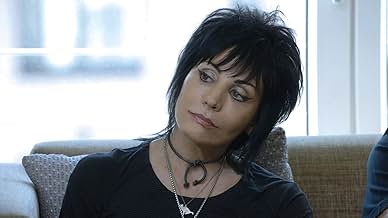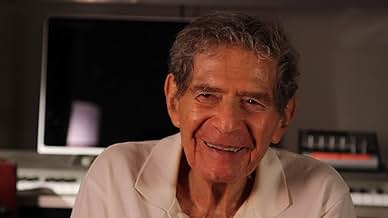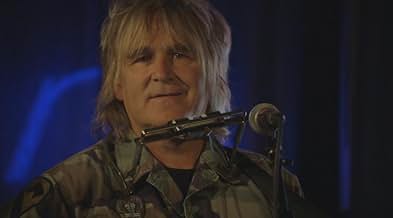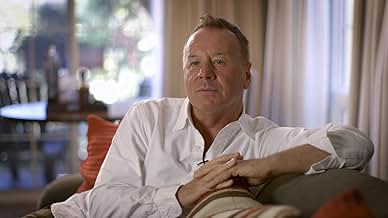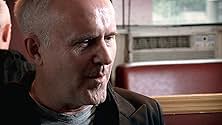In 1982, a small radio station battles to bring the New Wave to America.In 1982, a small radio station battles to bring the New Wave to America.In 1982, a small radio station battles to bring the New Wave to America.
M. King Adkins
- Self
- (as Dr. M. King Adkins)
Pete Byrne
- Self - Lead Singer, Naked Eyes
- (as Peter Byrne)
- Director
- Writer
- All cast & crew
- Production, box office & more at IMDbPro
7.6425
1
2
3
4
5
6
7
8
9
10
Featured reviews
Awesome Movie, Awesome Music
For anyone over 40 this movie will bring them back to a time when new wave was hitting the US. It is the story of the radio station in NY that brought the music here first and played over 1500 new wave artists in its short time on the air. The movie tells the really interesting story of life at the radio station when all these acts were young and unknown - so many to go on to be mainstays on 80's radio. But at the time for me and so many it was a revelation to hear this music.
Great interviews with the artists and producers. So much great music and live footage in the movie. You are transported back to 1982 and the movie brings back that fresh feeling of hearing things for the first time, along with great interviews that tell us what the artists were thinking.
Instant classic!
Recommend this to anyone who loves 80s music
I got to see Dare to Be Different at a film festival and it was a blast! The sound mix was so good and the music selection so right on that I was dancing in my seat the entire time. It felt as if the entire audience was having a shared musical experience of 80s music and memories. Even though this is the music of my youth, I didn't know that much about the artists who created the 80s sound. It was very engaging to hear artists, now in their 50s and 60s, riff about their early work, their inspirations, and how the era influenced their music and message. The story of the small, rogue, radio station that played this music was an entertaining subplot. Hearing the DJs remember moments when famous artists "hung out" at WLIR or when they literally had to go to the airport to pick up record imports gave the documentary authenticity. I recommend this documentary anyone who loves 80s music.
The Soundtrack of my Life
The music that moved me during the best years of my life. The insight and history of the performers and the songs had me spellbound.
West Coast girl just doesn't get it....
I was 15 in 1979 and this was my music growing up so I feel like I understand the history reasonably well. The Cure, Split Enz, Adam & and the Ants, The English Beat, and Devo were at the center of my music world. This documentary doesn't make a lot of sense to me, or at least the spin on how amazingly groundbreaking it was. I'm sure this radio station was a big deal in Long Island, but it just seems really late to the party to me. They make a big deal about being so influential and how MTV could barely have existed without them, but WLIR didn't even change format to New Wave until August 1982 - new wave (and MTV which started a year before WLIR) was well established by then. I listed to KROQ's New Wave format in Los Angeles for many years before WLIR even changed format to New Wave. This is from Wikipedia (about KROQ): "By 1980 the station had fully committed to a post-new wave modern rock orientation." And they say "post-new wave" because they'd been playing New Wave since 1976 and by 1980 it was about time for post-New Wave - WLIR didn't even start playing New Wave until 2 years after KROQ went "post-new-wave." Not exactly groundbreaking from my perspective. I can see looking at some old playlists that they were playing some New Wave songs before the format change, but definitely mixed in with plenty of Stevie Wonder and Bruce Springsteen.
I don't think the documentary knew what it wanted to be. If it wanted to be about the politics and staff of the Long Island radio station, that part of the story doesn't seem very interesting unless you lived there at the time. If they were going to tell a story of a groundbreaking New Wave station, they should have made it about KROQ. If they were going to tell more of a New Wave story, then WLIR could have just been a small segment in the latter part of the documentary.
I will say that the interviews with the Dave Wakeling, Thomas Dolby and others were worth at least fast forwarding to get to, but I can't really recommend the documentary itself. I'm giving it a 5 for probably being interesting to a NY audience and for getting to see some artists on camera that I haven't seen for many years.
I don't think the documentary knew what it wanted to be. If it wanted to be about the politics and staff of the Long Island radio station, that part of the story doesn't seem very interesting unless you lived there at the time. If they were going to tell a story of a groundbreaking New Wave station, they should have made it about KROQ. If they were going to tell more of a New Wave story, then WLIR could have just been a small segment in the latter part of the documentary.
I will say that the interviews with the Dave Wakeling, Thomas Dolby and others were worth at least fast forwarding to get to, but I can't really recommend the documentary itself. I'm giving it a 5 for probably being interesting to a NY audience and for getting to see some artists on camera that I haven't seen for many years.
Loved It!
In 1982 I was 18 and a year out of high school. It was amazing to here about the clubs I used to frequent, the artists that started out of Long Island and that even thought at the time I didn't know it, and I'm sure none of us did, WHAT an impact it really was to the music world and how proud I am that I was part of that.... Definitely a film to keep in my collection. Thanks for the Memories.
Did you know
- Quotes
Michael Pagnotta: It was a movement in technology. And the difference between what Vince Clarke or Martin Gore, as opposed to what Keith Emerson could do, was completely different. The battery of keyboards that Wakeman and Emerson had to have on stage, I was the biggest Yes and the biggest ELP fan, so I love the sound of the Moog synthesizer. But, that was not a portable situation.
- SoundtracksMy Way
(Comme d'Habitude)
Music by Claude François and Jacques Revaux
French lyrics by Gilles Thibaut
English lyrics by Paul Anka
Performed by Sid Vicious
Details
- Release date
- Country of origin
- Official site
- Language
- Also known as
- Посмей быть другим
- Filming locations
- Los Angeles, California, USA(on location)
- Production companies
- See more company credits at IMDbPro
- Runtime
- 1h 35m(95 min)
- Color
Contribute to this page
Suggest an edit or add missing content


